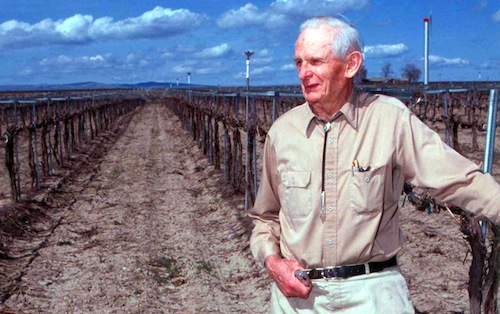
PROSSER, Wash. – It has been 10 years since “the father of Washington wine” passed away, and colleagues and friends of Walter Clore say he would be pleased with what has happened in the Washington wine industry in the past decade.
“I don’t think he’d be too surprised at the rapid growth,” said Wade Wolfe, owner/winemaker at Thurston Wolfe Winery in Prosser. “He saw the future of the industry.
“He might say, ‘What took us so long to get here?’ ” Wolfe added with a chuckle.
Clore, who was born in 1911 in Oklahoma, died in February 2003. He was raised in a teetotaling household, and his mother was a strict member of the Women’s Christian Temperance Union – an inauspicious beginning for someone who would help launch a region’s wine industry.
After graduating from Oklahoma A&M (now Oklahoma State University), Clore went to graduate school at Washington State College in Pullman just six months after Prohibition was repealed in December 1933. In 1937, he and his wife, Irene, moved to Prosser, where he was an assistant horticulturist at what now is the Irrigated Agriculture Research and Extension Center, run by WSC.
In the Yakima Valley, he met William Bridgman, a two-time mayor of Sunnyside who had begun planting European wine grapes nearby in 1917. This helped spark Clore’s interest in wine grapes, and through the 1950s and ’60s, he conducted various growing and winemaking trials to determine some of the best regions to grow grapes in the vast Columbia Valley.
Walter Clore retires in 1976 to work in wine industry
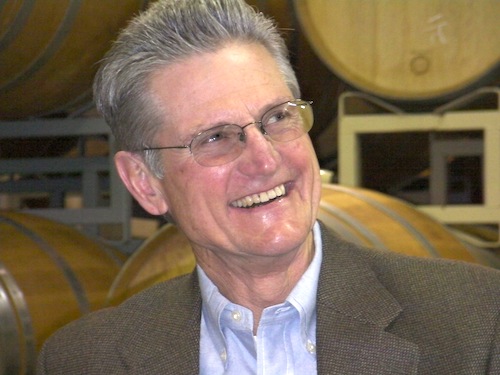
After retiring in 1976, Clore became more involved in the wine industry, working as a consultant for Chateau Ste. Michelle. In 1978, Wolfe arrived in the Yakima Valley, having been hired as a viticulturist for Chateau Ste. Michelle.
“I met Walt the first day I was here,” he said. “He took me around and introduced me to the growers.”
A few years later, Wolfe and Clore would collaborate to write the federal petition for the Columbia Valley American Viticultural Area, which was approved in 1984. Wolfe left Ste. Michelle a year later to become a consultant and start Thurston Wolfe Winery with his wife, Becky Yeaman. Wolfe is widely viewed as Clore’s successor because of his viticultural knowledge and academic approach.
Wolfe said one thing that might intrigue Clore is the comeback of Riesling, a dominant grape variety from the 1960s through the 1980s. But by the time Clore died, Chardonnay, Cabernet Sauvignon and Merlot were the big players in Washington.
“Seeing Riesling make a comeback might be surprising to him,” Wolfe said.
Clore helps write the book on Washington wine
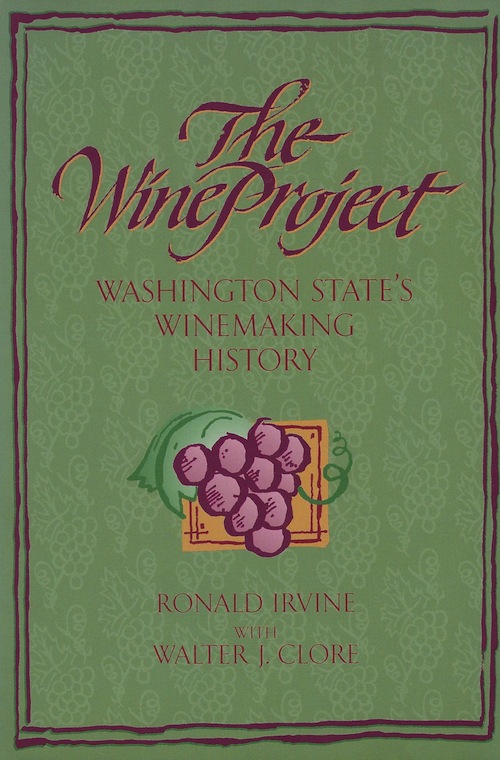
In 1997, Ron Irvine wrote The Wine Project: Washington State’s Winemaking History, which remains the most important historical reference on the state wine industry. Irvine, owner and winemaker of Vashon Winery near Seattle, wrote it in cooperation with Clore. The two spent thousands of hours together crisscrossing the state to conduct research, walk vineyards and interview the industry’s key players.
Irvine said Clore might shake his head in amazement at what the industry has become, yet he said Clore had a vision of the Columbia Valley growing to 40,000 acres of vineyards – which it has in recent years.
“It’s even greater than his wildest dreams,” Irvine said.
Regarding Riesling, Irvine said he believes Clore would be pleased with its rebirth as a dominant Washington variety.
“I don’t remember him ever being a huge proponent of Riesling, but he understood its place in Washington,” Irvine said. “He would be happy with its quality and place in the world.”
Walter Clore and new AVAs
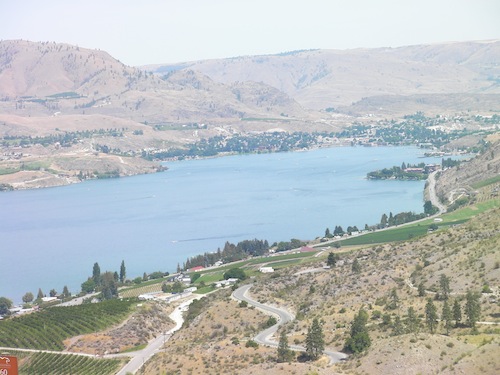
Both Irvine and Wolfe said Clore would enjoy and appreciate the proliferation of AVAs – which now number 13. When Clore died, there were five.
“I think he would be particularly pleased with the growth of the AVAs up into Chelan and Ancient Lakes,” Irvine said. “I think he expected it. He would have been very happy to see these come to pass.”
Wolfe agreed.
“He probably would think most of them are a good thing,” he said. “He was involved in doing most of the work on the Columbia Valley, largely by the prompting of Allen Shoup (then CEO of Ste. Michelle). I think he would have thought the smaller AVAs are more appropriate and meaningful than the larger ones – more beneficial and defining to the consumer.”
Wolfe said Clore’s legacy in the wine industry is strong – thanks in large part to the building of the Walter Clore Wine & Culinary Center in Prosser, the town he lived in until his death. The center is under construction on a site overlooking the Yakima River and is expected to be completed this winter.
Wolfe said Clore’s research conducted and written in the ’60s and ’70s is still an invaluable tool and carries with it lessons that can be used today. It shows, for example, the effects of bad winters on Washington vineyards and indicates the kinds of slopes vines should be grown on.
WSU Wine Science Center part of Clore’s legacy
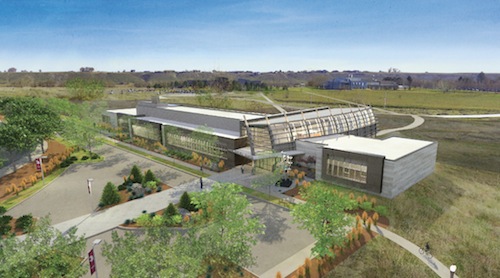
The Wine Science Center, scheduled to be built in the next 18 months on the Richland campus for Washington State University, would no doubt please Clore.
“That’s another reflection of the maturation of our industry,” Wolfe said. “It helps us legitimize ourselves to the rest of the world. You have to have a facility and an institution like that. It’s amazing how well we’ve done with research and, more recently, with education by cobbling things together.”
In fact, Clore’s early work involved a team that included Chaz Nagel and George Carter. Clore and Carter worked side by side in Prosser on the viticultural side, while Nagel made the wine some three hours away on the main campus in Pullman.
Even today, WSU’s viticulture and enology program is spread out between three campuses in Prosser, Richland and Pullman. When the Wine Science Center is completed in late 2014, it will consolidate the research and education in one place for the first time – and serve as a legacy to Clore’s tireless work for the industry.
“To have that one central facility will help our industry and also give us pre-eminence at an international level,” Wolfe said.
Irvine added, “It would be a realization of his vision.”
Wolfe is not concerned about the new generation of Washington winemakers not knowing who Clore was or how he helped pave the way for their success. Such legacies as the Clore Center and Columbia Crest’s Walter Clore Private Reserve – a top-end red blend – continue to secure his legacy in the mind of winemakers, growers and consumers.
He added that whenever he speaks about wine – whether to consumers or industry – he often has the opportunity to mention Clore and his work.
“We made a presentation in Seattle for the 30th anniversary of the Yakima Valley AVA,” Wolfe said. “Walt’s name came up several times about Lemberger and the research he did.”
Irvine’s book is used as a text as part of South Seattle Community College’s wine program, and he said he still has about 100 copies left from the print run in 1997. They are available for $30 by calling Vashon Winery at 206-931-4703.

Leave a Reply